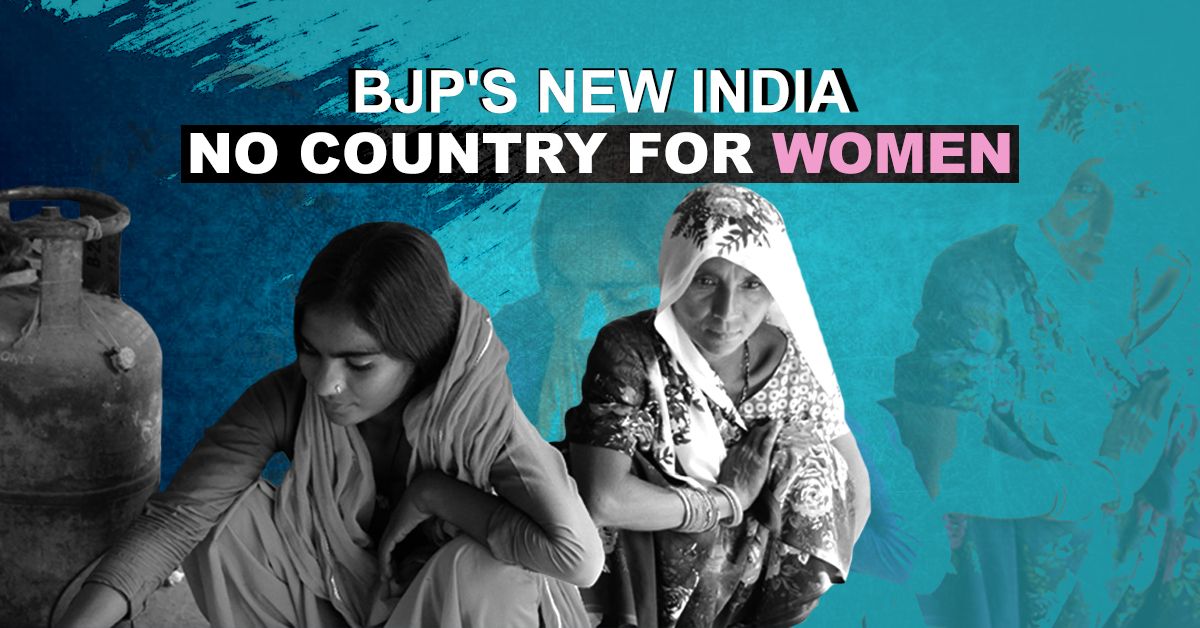BJP's New India - No Country for Women

Weak? Helpless? Marginalised? Victims?
PM Modi’s “Beti Bachao, Beti Padhao” slogan brackets women in all these categories. The slogan itself talks about the dire need to save the daughters of the country.
What is the BJP Government doing about the people, practices, and predicament they say the women need to be saved from?
It is well known that the BJP originated from the RSS, an organisation that has a long history of women’s repression. Their orthodox beliefs and patriarchal mindset only see women as the weaker gender which cannot sustain on its own. They see women as fragile and subordinate to the male-dominated order. The perception of women as choice-less and voice-less in service of a patriarchal setup cannot be ignored.
Under the BJP regime, increasing crimes against and deteriorating mentality towards women tell of a phenomenon not seen in India before 2014. In the Unnao and Hathras cases, the BJP leaders were not only heard making shameful comments for the victims and their families but were also hand in glove with the perpetrators, as clearly seen in the former incident.
At a time, when the Modi government is not ashamed of telling the other half of the population that they need to be protected, while pushing the victims of violence far away from justice, there stands a fierce Bharat ki beti, Smt Priyanka Gandhi Vadra, who has sounded the clarion call with the slogan, ‘‘Ladki hun, Lad Sakti hun’—a movement to fight the vicious web of patriarchy and misogyny.
While both the slogans speak for women empowerment, their approaches and narratives are completely antithetical. While Modi’s model of women empowerment talks about saving women through various means with no discourse on the question as to why do we even need to put women in a situation where they need to be saved. The clear difference lies in Priyanka Gandhi’s vision of making women independent and capable to ensure their involvement and representation on all fronts.
While we know education is an integral part of women empowerment, however that alone is not enough. Women in the 21st century want equality and freedom. They want equality at their workplace, in their family, social groups and the society at large. They want the freedom to make their own choices and to not be judged for them.
Today a woman leader has become a phenomenon, spearheading the fight for the rights, dignity and liberty of all women, while the BJP mocks this movement for change as its responsibility towards women ends at money for the household, bathrooms, and provision of gas cylinders.
Congress general secretary Priyanka Gandhi Vadra stands firm to change such a mentality and is pushing for making Indian women independent, self-reliant and fearless.
Every woman in India must realise that true empowerment comes from a system that provides equality and acknowledges the power each woman holds.







